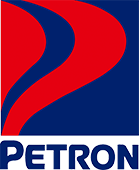Petron Corporation ended the fourth quarter of 2020 with consolidated revenues of P69.6 billion, marking two straight quarters of growth, after experiencing a historic slump in the second quarter due to the pandemic’s economic impact. The last quarter of the year registered a 46% improvement from the P47.7 billion reported in Q2, Petron’s hardest hit quarter in 2020.
Maintaining its upward momentum, the company’s consolidated sales volume in the fourth quarter reached 19.08 million barrels despite the GCQ extension in key cities in the country and another Conditional Movement Control Order in Malaysia. This is a 6.6% increase from the second quarter sales of 17.9 million barrels.
Petron posted a consolidated net income of P1.2 billion for the fourth quarter due to increased volumes and inventory holding gains as prices began to rally towards year-end. However, refining margins remained soft which challenged the economic viability of the company’s Philippine operations.
“We have been working hard to minimize the impact of the pandemic on our business and our performance in the second half of 2020 proves that we are moving in the right direction. We look forward to sustaining our recovery as we anticipate higher demand and a more stable industry situation with an end to this crisis finally in sight,” said Petron President and CEO Mr. Ramon S. Ang.
For the whole of 2020, the company’s consolidated sales volume stood at 78.6 million barrels, down 27% from 2019’s 107 million barrels. Consolidated revenues declined 44% to P286 billion from P514.4 billion in 2019, reflecting the impact of the pandemic on Petron’s financial performance. Overall, Petron incurred a net loss of P11.4 billion for the full year coming from its 2019 net income of P2.3 billion.
Aware of the current industry condition, Petron is focused on further improving its competitiveness. Petron’s Bataan Refinery was granted approval as a registered enterprise in December 2020 by the Authority of the Freeport Area of Bataan (AFAB). FAB-registered enterprises are entitled to avail of fiscal incentives under Special Economic Zone Act of 1995 or Omnibus Investment Code of 1987. This will benefit the company in the form of better timing on the payment of VAT which shall be upon withdrawal of the products from the refinery.
“We continue to implement various cost saving efforts but tax efficiency is another critical area that should improve. Our AFAB registration will help make our refining business more competitive and financially viable as soon as demand recovers,” said Mr. Ang.
The company looks forward to significant demand recovery this 2021 and plans to resume refining by the second half of the year.
Petron’s 180,000 barrels per day refinery—the only remaining refining facility in the country—produces high-value petroleum products and petrochemicals capable of supplying 40% of domestic demand.
Despite being greatly affected by the pandemic, Petron strives to make a positive impact on the economy. The country’s largest oil company remained the biggest contributor in the government’s Fuel Marking Program, according to the latest tally by the Department of Finance (DOF).

